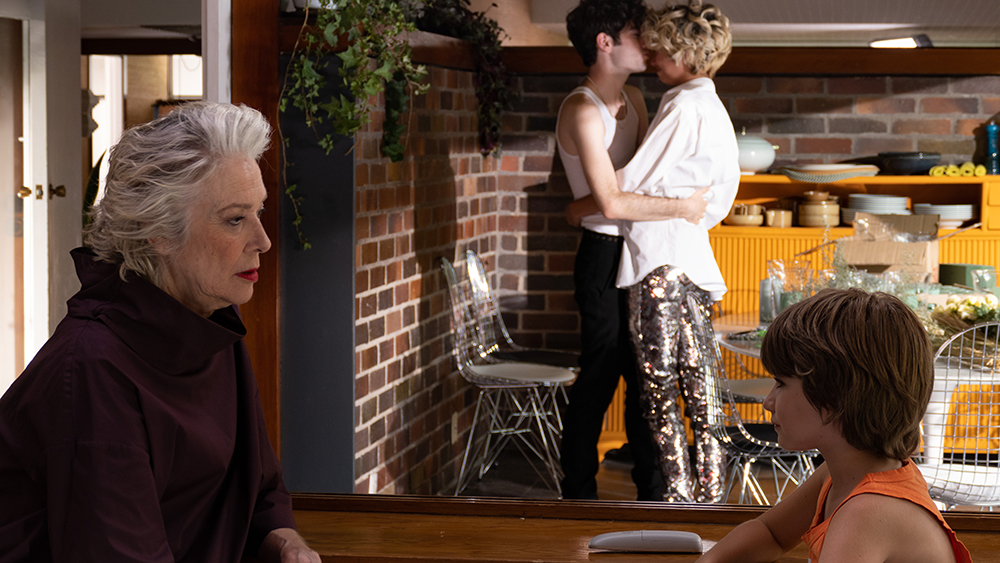Spain’s TV fiction industry is exercising some caution after high-end Spanish-language series lifted off in 2018.
“We all wanted to launch so many projects, so many new platforms arrived that there was no time for analysis,” says Bambú co-founder Ramón Campos.
As streamers scale back on originals and sales cycles slow, the industry has time for larger re-calculation.
“We come from a spectacular moment, in terms of both quality and volume,” says Sonia Martínez, series editorial director at Buendía Estudios.
That groundbreaking moment, championed by series like “Money Heist” and “Elite,” propelled Spanish fiction production to historic heights of global popularity.
“There is a virtuous circle that began in 2018 and has been continuously regenerating. Spain’s talent base already interests international audiences,” says María Valenzuela, Movistar Plus Intl.’s general manager.
But the country’s TV production scene is still cycling through the fruits of the boom: the number of TV series commissioned rose from 67 in the September 2021-August 2022 period to 82 the next period, according to Caroline Servy, managing director of data analytics firm the Wit.
And pricey projects remain, such as London, Morocco, Spain and Jerusalem-set “Sira,” a follow-up to TV ratings hit and international sales champion “The Time in Between.”
Despite the healthy numbers, economic instability and production costs increase have made it necessary to seek out new alliances to launch competitive TV fiction contents.
“We’ll continue making high- budget series, but instead of streamer originals, we’re considering other traveling companions, negotiating windowing and rights,” Martínez explains.
Trying to stand out in a crowded scripted TV marketplace, new projects are expanding their ambitions through well-known local talent, and assuming creative risks.
The fall’s biggest releases include Movistar Plus and Suma Content series “La Mesías,” from “Veneno” creators Javier Ambrossi and Javier Calvo. It’s one of Mipcom’s high-profile international premieres, which “defines very well how seriously we take creativity,” according to Valenzuela.
“Elite” creator Carlos Montero is readying “Respira,” a hospital-set drama for Netflix, while Prime Video, Dopamine and Focus are producing procedural “Reina Roja,” an adaptation of a Juan Gómez-Jurado trilogy.

Other series of note include “Mentiras pasajeras,” toplining Elena Anaya, which teams the Almodóvar brothers’ El Deseo with Paramount TV International Studios, and Alex de la Iglesia’s Netflix thriller series “1992.” “Spain continues generating high expectations with promising projects,” Servy comments. It’s also exploring new TV fiction paths. “El cuerpo en llamas,” one of the biggest hits of the season on Netflix’s non-English TV drama charts, stars “Money Heist’s” Úrsula Corberó, and represents an early bet on drama inspired by real-life events. Teaming Netflix and Bambú, miniseries “El caso Asunta” marks another real life-inspired crime drama that was the basis for a 2017 true-crime series from the same producers. Scheduled for RTVE’s La1 primetime, Tornasol Media and DeAPlaneta’s comedy “Detective Touré” follows a Bilbao-based detective who’s a Black immigrant. “This Is Not Sweden,” teaming RTVE and Catalonia’s TV3 in international co-production, marks the first high-profile fiction series released exclusively on platform RTVE Play.
Among local operators, RTVE and Atresmedia are the most active in terms of fiction content production, commissioning some 20 projects each for this year, ahead of Netflix and Prime Video, Servy says.
Atresmedia platform Atresplayer is adding doses of eroticism to some of its upcoming projects, such as the adaptation of Megan Maxwell’s “A qué estás esperando,” teaming with Banijay’s Diagonal and DeAPlaneta; and, in partner- ship with Buendía, is developing a TV redo of Antonio Gala’s novel “La pasión turca,” toplining Maggie Civantos (“Vis a Vis”).
In post-peak TV, market priorities are rapidly evolving.
Once dominated by local drama, primetime TV has been mainly occupied by entertainment shows and international often Turkish series.
Meanwhile, Spanish shows are progressively moving from linear TV to operators’ own platforms, in search of younger audiences.
Outside primetime slots, RTVE has just launched Boomerang TV-produced “La Moderna” to pair with hit period series “The Vow,” a Studiocanal-Bambú co-production, in a double daily afternoon fiction slot, while it programs Daniel Écija’s romcom “4 Estrellas” in the daily access primetime spot.
“Daily fiction allows us to create more jobs, and retain viewers’ loyalty,” says José Pastor, RTVE head of film and fiction.
In streaming, producers face the challenge of series’ increasing brevity.
“The streamers don’t want long seasons. And second seasons cost a lot to be renewed,” says Filmax’s executive and show creator Pau Freixas. “This makes it increasingly difficult for the audience to establish a complicity and trust with characters.” Freixas’ Movistar Plus original suspenser “Todos mienten” launches Sea- son 2 in December.
In several ways, TV fiction is looking a little more inward.
Martínez says, “We are beginning to dare to talk about things that are happening to us as a society and as people.”
Producers are also increasingly seeking to link up with local operators as a reaction to streamers’ outside turbulence.
“For safety reasons, we should concentrate on national confines. In the past, we focused on Spain and our series traveled,” says Campos, whose 2011 drama-thriller “Gran Hotel” was sold by Beta Film to more than 100 territories, with multiple remake deals.
“We should focus on working with local operators such as RTVE and Atresmedia, or even Netflix, companies we know aren’t going to leave our market,” Campos says, adding, “Once we conquer the local market, we will reach audiences around the world,” he adds.
